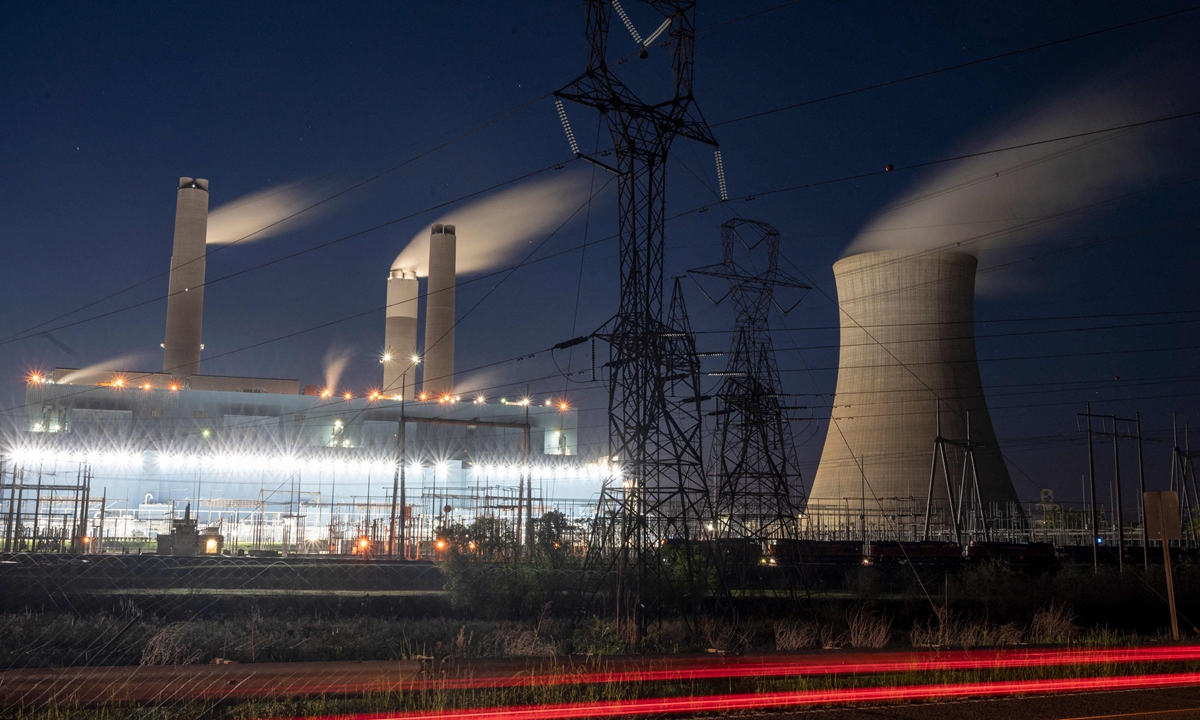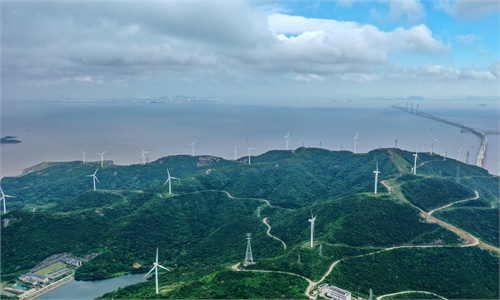COMMENTS / EXPERT ASSESSMENT
Developed countries should quit empty talks and take real actions to tackle climate change

Steam rises from the Miller coal Power Plant in Adamsville, Alabama on April 11, 2021. Photo: VCG
After vowing to peak carbon emissions by 2030 and achieve carbon neutrality by 2060, China recently pledged to stop building new coal-fired power projects abroad and step up support to other developing countries to obtain green and low-carbon energy.
China has been taking its responsibility as large nation to tackle global climate challenge even though its industrialization process started hundreds of years later than in Western developed countries.
However, developed nations, especially the US , have shown unsatisfactory efforts to shoulder their own responsibilities after growing at the cost of environmental pollution. Instead of ignoring their own responsibilities or trying to deflect them to developing countries, developed countries should take the lead in drastically reducing emissions and achieve net zero or negative carbon emissions sooner.
As the world's largest economy, the US has an average CO2 emission of 15.52 tons per person, more than two times over that in China, according to data tracking platform Worldometers. In 2019, the US even dropped out of the Paris Climate Agreement. Though the Biden administration has announced, after taking over office, that the US will rejoin the agreement and come up with a plan to achieve net zero emission by 2050, the goal has not been passed by the US congress yet.
What appears quite ironic is that the US Special Presidential Envoy for Climate, John Kerry, recently claimed that "China can do more" when it comes to tackling climate change.
In response, Chinese Foreign Ministry spokesperson Wang Wenbin said in a press conference that "it usually took developed countries 100 to 200 years, from industrialization to carbon peaking, which China only needs about 50 years. From carbon peaking to carbon neutrality, the EU will spend 71 years, the US 43 years and Japan 37 years. But the goal China set for itself is 30 years."
Indeed, climatic extremes have become increasingly frequent across the world in recent years, destroying homes of millions of people with dreadful bushfires, hurricanes and other disasters. And it is quite clear which country is making stable and effective contributions to the global fight against climate challenge.
United Nations Secretary-General, Antonio Guterres, urged on Monday rich countries to deliver the promised $100 billion a year for climate action in developing countries, according to Xinhua News Agency.
Experts have pointed out that 15 percent of CO2 emissions remain in the atmosphere for centuries. The historical responsibility of developed countries should not be ignored and it is unfair for rich countries to ask developing countries, which have just started industrialization a few decades ago, to sacrifice their growth and pay for the debt of developed countries. Rich countries should take the lead to reduce emission and go beyond to help developing countries to grow in a green and low-carbon path.
As a stable force to cope with climate change, China will live up to its words and always welcome international cooperation on the global crisis. In the meantime, developed countries should quit empty talks and take real actions to tackle the crisis.
The author is an editor with the Global Times. bizopinion@globaltimes.com.cn


